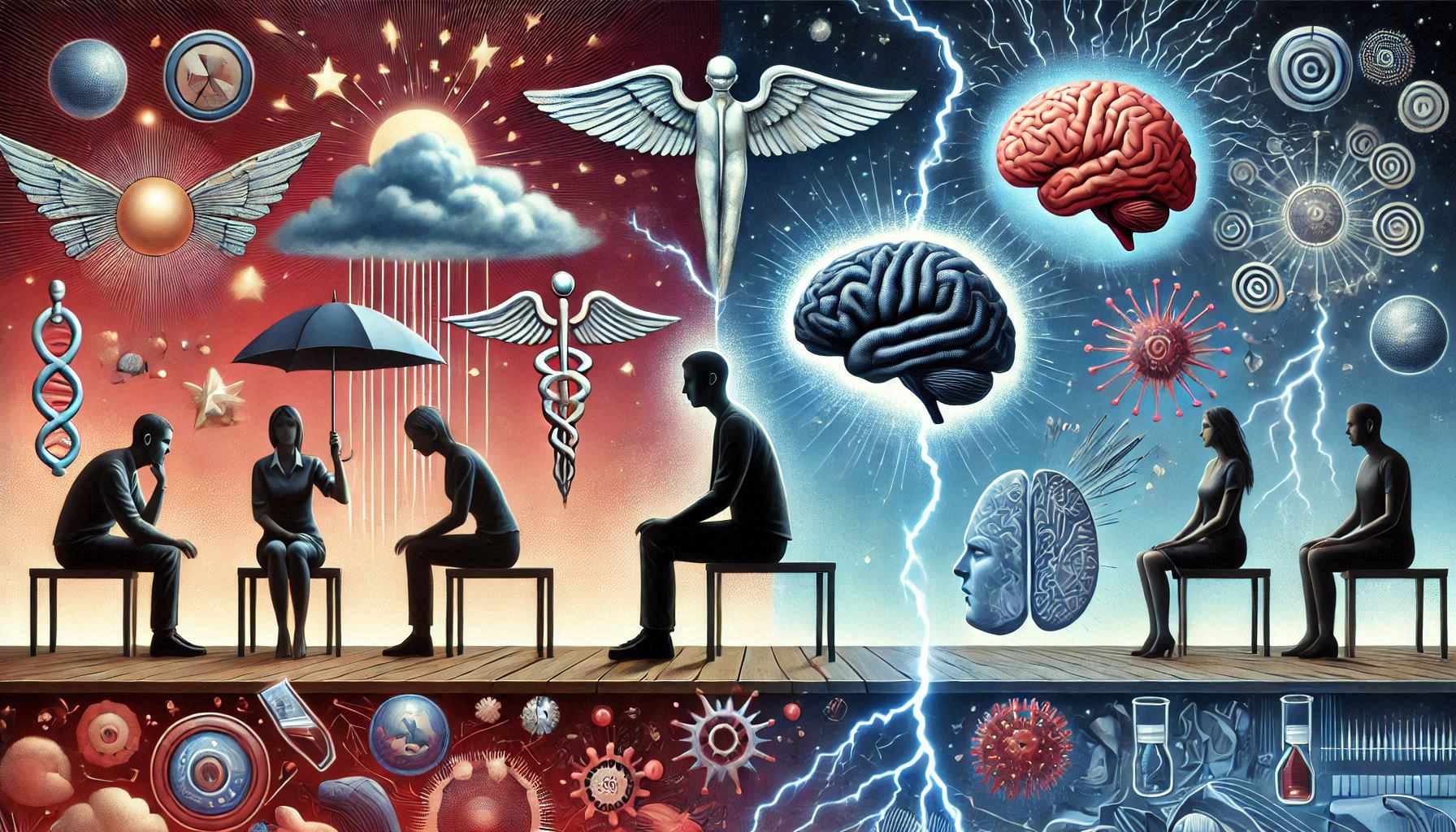In an increasingly digital world, the concept of addiction has expanded beyond the traditional confines of substance use to encompass various forms of behavioral addiction. Among these, navigation addiction—often manifesting through compulsive use of GPS and navigation applications—has emerged as a notable phenomenon. This exploration seeks to analyze the intersection of navigation addiction and mental health, focusing on its implications, underlying motivations, and potential paths toward recovery.
Understanding Navigation Addiction
Navigation addiction refers to the excessive reliance on digital maps and GPS systems for direction and orientation. While these tools have undeniably enhanced our ability to navigate complex environments, their pervasive use can lead to detrimental effects on mental health and overall well-being. The term encapsulates various behaviors, including compulsively checking maps, feeling anxious without access to navigation tools, and losing the ability to navigate without technology.
The Psychological Underpinnings
At its core, navigation addiction can be viewed through the lens of behavioral addiction. Similar to other forms of addiction, it often involves a cycle of craving, use, and withdrawal. For many, navigation applications provide not just directions, but also a sense of security and control over their environment. This reliance can stem from several psychological factors:
- Fear of Disorientation: The modern individual often experiences anxiety related to uncertainty and disorientation. Navigation applications mitigate this fear by providing a clear path and reducing the stress of getting lost.
- Cognitive Offloading: Relying on GPS technology allows individuals to offload cognitive tasks, reducing the mental effort required to navigate. While this can be beneficial, it also leads to a decrease in our innate navigational skills.
- Instant Gratification: The immediacy of information provided by navigation apps satisfies the human desire for quick results, reinforcing habitual use and dependence.
- Social Comparison: In an era of social media, there is often pressure to share experiences that are visually appealing and well-planned. Navigation tools help individuals curate their journeys, leading to a reliance on these technologies for a “perfect” experience.
The Impact on Mental Health
The intersection of navigation addiction and mental health is complex. While navigation apps can alleviate anxiety for some, they can exacerbate mental health issues for others.
- Anxiety and Stress: For individuals prone to anxiety, the reliance on navigation tools can create a paradoxical effect. On one hand, GPS can alleviate the immediate fear of being lost; on the other, it can create dependency. An individual may experience heightened anxiety when without access to their GPS, leading to a vicious cycle of dependence.
- Loss of Autonomy: Constant reliance on digital navigation can erode one’s sense of autonomy and competence. The inability to navigate without technology can contribute to feelings of inadequacy and loss of self-efficacy. This is particularly evident among younger generations who have grown up in a digital landscape where traditional navigation skills are rarely practiced.
- Depression and Isolation: Navigation addiction can also contribute to social isolation. Individuals may opt for solitary navigation experiences—focusing on their devices rather than engaging with their surroundings or connecting with others. This behavior can lead to feelings of loneliness and depression, as the richness of human interaction is replaced by a screen.
Case Studies and Personal Accounts
Exploring personal narratives can provide insight into the real-world implications of navigation addiction.
- The Commuter: Sarah, a 28-year-old marketing professional, found herself reliant on her GPS for every commute, even those she had made countless times before. Over time, she noticed a growing anxiety when her phone battery ran low. This anxiety compounded during a particularly stressful work period, leading her to feel overwhelmed and unable to make decisions without her navigation app.
- The Traveler: John, a seasoned traveler, initially embraced GPS technology for its convenience. However, he began to notice a shift in his travel experiences. Instead of exploring and discovering new places, he became fixated on following the most efficient routes suggested by his app. This reliance diminished his sense of adventure, leading to feelings of discontent and a longing for the spontaneity of his earlier travels.
- The Student: Emily, a university student, found that her dependence on navigation apps extended to her daily life on campus. She struggled to remember how to get to classes without her phone, which resulted in chronic stress. This over-reliance impacted her academic performance and overall well-being, leading her to seek counseling services for anxiety.
Navigating the Path to Recovery
Understanding navigation addiction is essential, but so is finding pathways to recovery. Addressing this form of addiction involves a multifaceted approach.
- Awareness and Education: Increasing awareness about the potential pitfalls of navigation addiction is crucial. Educational initiatives can help individuals recognize their reliance on technology and encourage them to practice traditional navigation skills. Workshops or classes on map reading and orientation could foster a sense of competence and reduce dependence on digital tools.
- Mindfulness and Reflection: Practicing mindfulness can empower individuals to reconnect with their surroundings. Encouraging users to take breaks from navigation apps can help them develop a greater awareness of their environment. This practice can also reduce anxiety and promote mental well-being by fostering a sense of presence and engagement.
- Gradual Exposure: For those struggling with navigation addiction, a gradual approach to reducing reliance on GPS can be effective. This might involve setting specific goals, such as navigating without assistance for short trips or familiar routes. Over time, individuals can build confidence in their navigational abilities.
- Seeking Professional Help: In cases where navigation addiction significantly impacts mental health, seeking professional help can be beneficial. Therapists can work with individuals to address underlying anxiety, teach coping strategies, and promote healthier relationships with technology.
The Role of Technology Companies
As navigation addiction becomes increasingly recognized, technology companies have a role to play in mitigating its effects.
- User-Friendly Design: Creating navigation apps that encourage users to explore their environment without constant dependence could be beneficial. Features that promote offline maps or encourage users to engage with their surroundings could reduce over-reliance.
- Incorporating Breaks: Apps could integrate reminders to take breaks from navigation or suggest routes that allow for exploration rather than just efficiency.
- Educational Resources: Companies can provide educational resources within their apps to help users develop navigational skills and promote mental well-being.
The Role of Self in Navigation Addiction and Mental Health
The concept of “self” plays a pivotal role in understanding navigation addiction and its effects on mental health. The “self” encompasses identity, autonomy, and the way individuals perceive their abilities and relationships with their environment and technology. Here are some key aspects of how the self-influences navigation addiction:
- Identity Formation: Our identity is closely linked to how we navigate the world. Many people derive a sense of self from their experiences, including how they travel and explore new environments. Over-reliance on navigation technology can alter this sense of self, leading individuals to feel less competent or adventurous. For example, a traveler who once felt confident exploring new cities might start to question their abilities if they rely solely on GPS.
- Autonomy and Competence: The sense of autonomy—the ability to make choices and govern oneself—is crucial for mental health. When individuals become dependent on navigation apps, their sense of autonomy may diminish. They may feel unable to navigate without technology, which can lead to feelings of inadequacy and frustration. This perceived loss of competence can affect self-esteem and lead to anxiety or depression.
- Coping Mechanism: For many, navigation apps serve as coping mechanisms for anxiety or stress related to getting lost or disoriented. This reliance can create a cycle where individuals feel secure only when they have access to technology. While this may provide temporary relief, it can also prevent them from developing essential navigation skills and coping strategies that promote resilience and self-efficacy.
- Social Comparison and Validation: In a world dominated by social media, the self is often shaped by social comparison. Individuals may use navigation tools to curate their experiences and share them online, seeking validation through likes and comments. This desire for external validation can exacerbate dependence on technology, as individuals may feel pressure to present a certain image or level of competence in their travels.
- Mindfulness and Presence: The self also relates to how present and engaged individuals are in their environments. Over-reliance on navigation apps can detract from the experience of being in the moment, leading to a disconnect from one’s surroundings. Practicing mindfulness—being aware of the present without judgment—can help individuals reconnect with their environments, fostering a healthier relationship with both themselves and their navigational abilities.
- Self-Reflection and Growth: Engaging in self-reflection can help individuals recognize their patterns of behavior regarding navigation and technology use. Understanding the motivations behind their dependence—whether fear, convenience, or social pressure—can lead to personal growth. This awareness can empower individuals to seek healthier ways to navigate their lives, both physically and mentally.
- Building a Positive Self-Image: Addressing navigation addiction involves cultivating a positive self-image that emphasizes resilience and adaptability. Encouraging individuals to set achievable goals—like navigating without GPS in familiar areas—can reinforce their sense of competence. Celebrating small successes can further enhance their self-esteem and encourage exploration.
Conclusion
The phenomenon of navigation addiction highlights the complexities of our relationship with technology in an increasingly digital world. While navigation tools offer significant benefits, their excessive use can lead to detrimental effects on mental health, contributing to anxiety, isolation, and a diminished sense of autonomy. Understanding the psychological underpinnings and real-world implications of navigation addiction is essential for fostering a healthier relationship with technology.
The role of self in navigation addiction is multifaceted, intertwining identity, autonomy, coping strategies, and social dynamics. By recognizing how these aspects influence behavior, individuals can work towards reclaiming their navigational skills and improving their mental health. Emphasizing mindfulness, self-reflection, and positive self-image can pave the way for healthier relationships with technology and a more enriched sense of self.
Through awareness, mindfulness, and gradual exposure, individuals can reclaim their navigational skills and promote mental well-being. Additionally, technology companies can play a crucial role in creating solutions that encourage exploration and reduce dependency. Ultimately, the journey toward balance requires a concerted effort from individuals, mental health professionals, and the tech industry alike, ensuring that our paths remain both navigable and enriching.
SOURCES
Pew Research Center. (2018) – The future of well-being in a tech-saturated world.
Griffiths, M. D. (2016) – The evolution of online gaming addiction. Journal of Behavioral Addictions.
Kim, B. W. K., Ryu, J., & Lee, J. (2016) – The effects of smartphone navigation on spatial knowledge. Computers in Human Behavior.
Kuss, D. J., & Griffiths, M. D. (2012) – Internet gaming addiction: A systematic review of empirical research. Cyberpsychology, Behavior, and Social Networking.
Carr, N. (2011) – The shallows: What the internet is doing to our brains. W. W. Norton & Company.
Turkle, S. (2015) – Reclaiming conversation: The power of talk in a digital age. Penguin Press.
Mindful.org. (2024) – Mindfulness in the age of technology.
Mental Health America. (2024) – Technology and mental health.
American Psychological Association. (2019) – The impact of technology on mental health.
World Health Organization. (2024) – Digital mental health: Evidence and guidelines.
HISTORY
Current Version
October 12, 2024
Written By:
BARIRA MEHMOOD



